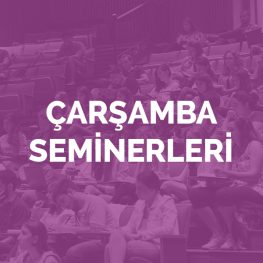Start
November 27, 2019 - 12:00 pm
End
Address
Koc University Rumelifeneri Campus, Faculty of Social Sciences Building, SOS143 View mapMiReKoc Seminar Series of Fall 2019 continues with Ashley Jordan’s presentation on ‘Architects of a New Humanitarianism: Syrian-led NGOs, Resource Mobilization and the Struggle for Agency and Dignity in the Humanitarian Arena’. The presentation and discussion will take place on Wednesday, November 27th, 2019, at 12:00, in SOS143. Registration is required for participants not affiliated with Koç University.
Title: Architects of a New Humanitarianism: Syrian-led NGOs, Resource Mobilization and the Struggle for Agency and Dignity in the Humanitarian Arena
Working Abstract: The humanitarian field is one of the many embedded fields of migration governance where NGOs and civil society are becoming recognized for their prominent role in providing protection and assistance. This has made way for policy agendas calling for the “localization of aid” and greater coordination between global and local actors. Refugee-led humanitarian NGOs are one such local actor, prominent but neglected in research, by which displaced people seek a stronger voice and role in managing concerns directly related to their lives and communities.
Using theories of NGOization and Resource Mobilization, the unique case of Syrian-led humanitarianism from Gaziantep, Turkey is investigated as a form of social movement which transformed from a grassroots collection of initiatives formed and fueled by Syrian activists, refugees and diaspora in the earliest stages of the Syrian conflict, into a complex web of NGOs responsible for carrying out almost all aid projects inside Syria via coordination and remote management with the humanitarian system. This raises two main points of inquiry: how has Syrian-led humanitarianism been affected by both Syrian and external actors within the humanitarian arena from Turkey, and how do these effects shape the resources Syrian NGOs use to pursue local alternatives to humanitarian action.
Preliminary results find that in dealing with Syrian-led NGOs, existing donor systems tend to replicate power asymmetries from the top-down, thereby transforming Syrian organizations into sites of governing and maintaining displaced persons and their immediate environments as governable subjects. This creates an illusion of localization and a climate in which long-term impact and downward accountability to the Syrian community must be sacrificed by Syrian NGOs to appease donors – fueling a crisis of legitimacy, competition and cohesion at the local level. However, results also find a wealth of creative strategies that Syrians use to pool resources from within their community to avoid co-optation, assert their agency and develop locally-informed responses and greater impact. This ultimately constitutes Syrian NGOs as spaces of contentious politics, leading to a uniquely hybridized humanitarian response with wide implications for both humanitarian reform and migration governance.
Short-bio: Ashley Jordan is a graduate student of the interdisciplinary Master’s program Governance of Migration and Diversity at Erasmus University Rotterdam, specializing in Public Administration. She received her Bachelor’s degree in Journalism in the United States and a pre-Master’s certificate in Human Geography from Radboud University Nijmegen, with a focus on Globalization, Migration and Development. Ashley’s main research interests are in several sets of dualities: mobility/displacement, transnationalism/localism, conflict/peace – especially where and how these issues intersect at levels of civil society and social movements. After years of experience working with local actors and small NGOs in Uganda, Nepal, Texas and Turkey she became particularly interested in the topics of humanitarian reform and localization, especially where and how they intersect with migration and the agency of people affected by conflict. Her past research focused on refugee entrepreneurship in the EU, while her current focus is on the role of Syrian-led humanitarianism from Turkey’s border regions.

